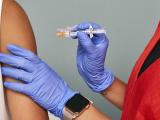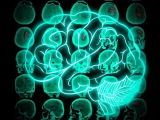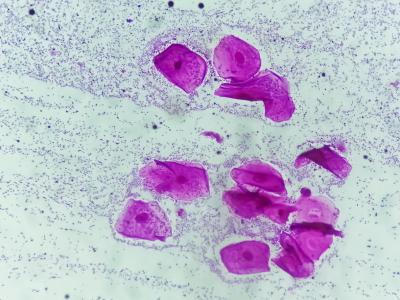Oct 2, 2009
Pandemic flu widespread in 27 states
The US Centers for Disease Control and Prevention (CDC) said today that 27 states reported geographically widespread influenza activity for the week that ended Sep 26, up 1 state from the previous week. In addition, 11 children died from pandemic H1N1 flu, compared with 3 the week before. There have been 60 confirmed pediatric deaths from the virus since the outbreak began.
http://www.cdc.gov/flu/weekly/?date=100209
Oct 2 CDC update
Flu cases drop at US colleges
The number of flu-like illnesses at colleges dropped 19% from the previous week, according to a report for the week ending Sep 25 from the American College Health Association (ACHA). The report showed 6,527 new cases at 248 schools. Though the report doesn't include flu subtype, federal authorities have said about 99% of circulating strains are pandemic H1N1. Colleges in New England and some western states reported increases, but other parts of the country saw cases decline.
http://www.acha.org/ILI_LatestWeek.cfm/?date=100109
Oct 1 ACHA surveillance report
WHO: Flu continues climb in Northern Hemisphere
Pandemic H1N1 flu is widespread in the Northern Hemisphere, particularly in the United States and northern and northwestern Mexico, the World Health Organization (WHO) said today. Activity is starting to increase in Europe and parts of Asia but is slowing in most of South America and Australia. So far the WHO has recorded more than 4,100 deaths, an increase of at least 130 from the previous week. About 85% of reported specimens were the pandemic strain.
http://www.who.int/csr/don/2009_10_02/en/index.html
WHO pandemic update 68
Poll finds limited interest in vaccine, growing H1N1 worry
Another poll has found lukewarm interest in getting the pandemic H1N1 vaccine. A Harvard survey found that 40% of adults were certain they'd get the shot and 51% were sure they'd get their kids vaccinated, slightly higher than in a recent Consumer Reports poll. The Harvard survey, conducted in mid September, indicated demand would surge if the virus caused local sickness and death. Seventy-six percent said they were concerned about more outbreaks, up from 59% in the summer.
http://www.hsph.harvard.edu/news/press-releases/2009-releases/survey-40-adults-absolutely-certain-h1n1-vaccine.html
Oct 2 Harvard School of Public Health press release
Taiwanese flu case reports reveal viral pneumonia
A review of the medical records from the first 100 severe H1N1 cases in Taiwan, initially posted to an international listserv, reveals that complex illness tends to strike children and young adults who are obese or have other underlying conditions, including pregnancy. Twenty-three of the 100 patients required mechanical ventilation, 9 went on extra-corporeal membrane oxygenation (ECMO), and 9 died. In contrast to US data, 89 of the 100 had primary viral pneumonia.
http://www.promedmail.org/pls/otn/f?p=2400:1001:490756761250050::NO::F2400_P1001_BACK_PAGE,F2400_P1001_PUB_MAIL_ID:1000,79462
Oct 1 ProMED-mail report
Researchers name severe flu syndrome: FLAARDS
Australian and New Zealand researchers have dubbed the direst manifestation of H1N1 flu "FLAARDS," for "flu A-associated acute respiratory disease syndrome," according to Bloomberg News. In a medical journal editorial, intensive-care specialists Drs. Steven Webb and Ian Seppelt describe inflamed, flooded lungs requiring mechanical ventilation or ECMO, sometimes leading to multi-organ failure and death. Bacterial pneumonias and underlying chronic conditions also play a role, they said.
http://www.bloomberg.com/apps/news?pid=20601081&sid=aPd3JODa5N08
Sep 29 Bloomberg News report
European agency endorses Baxter's cell-based vaccine
The European Medicines Agency (EMEA) today recommended approval of Baxter's cell culture-based H1N1 vaccine, Celvapan, for use in the European Union. The move follows similar verdicts last week on H1N1 vaccines from Novartis and GlaxoSmithKline. EMEA recommendations are usually adopted by the European Commission. Baxter said Celvapan is the first cell-based, non-adjuvanted H1N1 vaccine to get the EMEA's endorsement. The EMEA is recommending two doses of the vaccine for both adults and children.





















